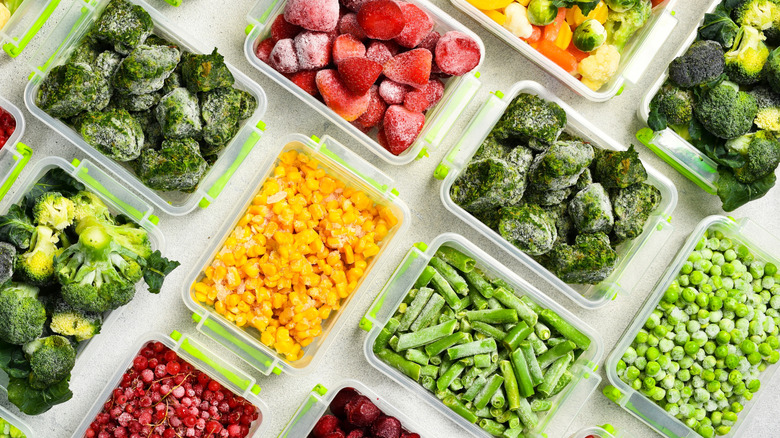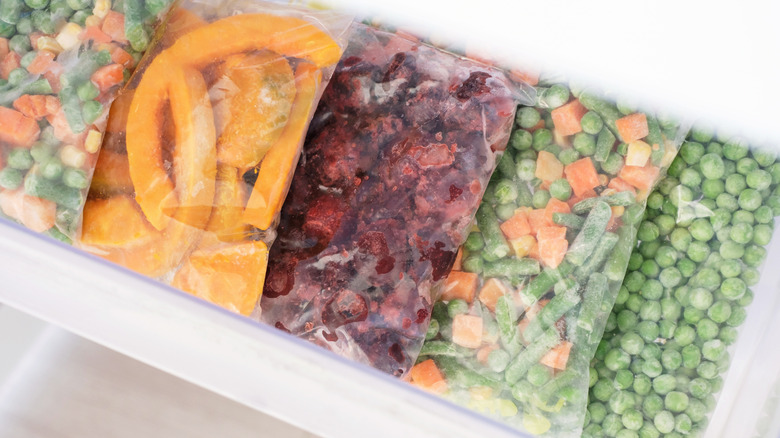Don't Stock Up On Frozen Vegetables Before Considering This
Having an abundance of frozen vegetables on hand can be a lifesaver during emergencies or for last-minute meals. However, there's such a thing as having too many frozen veggies. That's a hard thing to say as a self-proclaimed veggie monster, but just like how frozen fruit can go bad, frozen vegetables can too. If they're not used within a certain timeframe, their texture, taste, color, and nutrition will diminish.
Although anything frozen at 0 degrees Fahrenheit (-18 degrees Celsius) can still be safe to eat, frozen vegetables will start to degrade or "expire" within a few months after buying. Stocking up on frozen vegetables that are blanched before freezing, as the vast majority of commercially frozen vegetables are, will grant them a slightly longer quality lifespan. Frozen corn, leafy greens, peas, and summer squash, for example, can last up to eight months, while frozen beets, broccoli, carrots, cauliflower, green beans, and winter squash can be stored up to one year. On the other hand, frozen veggies (although technically fruits) that aren't blanched, like frozen raw bell peppers, tomatoes, or avocados, will start to decline in quality within three to five months. However, these periods could become even shorter due to inadequate freezer temps and/or faulty packaging.
A smarter way to stock up on frozen veggies
Before you start stocking up on frozen vegetables, ensure your freezer is set to 0 degrees Fahrenheit or lower. Freezers set even a few degrees above zero or that fluctuate in temperature can accelerate quality loss in frozen vegetables by causing ice crystal formation sooner, followed by freezer burn. Additionally, refrain from buying frozen vegetables in packaging that's been torn or damaged. Compromised packaging allows air in, resulting in freezer burn sooner, unless you replace the damaged packaging with storage that's appropriate for freezing.
Having an organized freezer also makes a world of difference when stockpiling frozen veggies because you can actually see what you have, or at least know where they're located. Categorizing veggies based on type and labeling them with their date of purchase on the bag comes in handy when taking inventory of what's new to the freezer and what may be going downhill soon and need to be used.
Before buying an arsenal of frozen vegetables, even if they're on sale for a killer deal, first consider if they're going to get used within a few months to a year. If you're someone who typically just stocks up on bags of peas to have just in case, consider stocking up on more canned veggies instead, except for the higher-sodium canned vegetables you should avoid. Some canned vegetables can last for years before their quality starts declining.

